News ·
Coral Nurture Program recognised at esteemed Eureka Prizes
A unique research and tourism partnership supporting coral restoration on the Great Barrier Reef has been recognised at the 2021 Australian Museum Eureka Prizes for Applied Environmental Research.
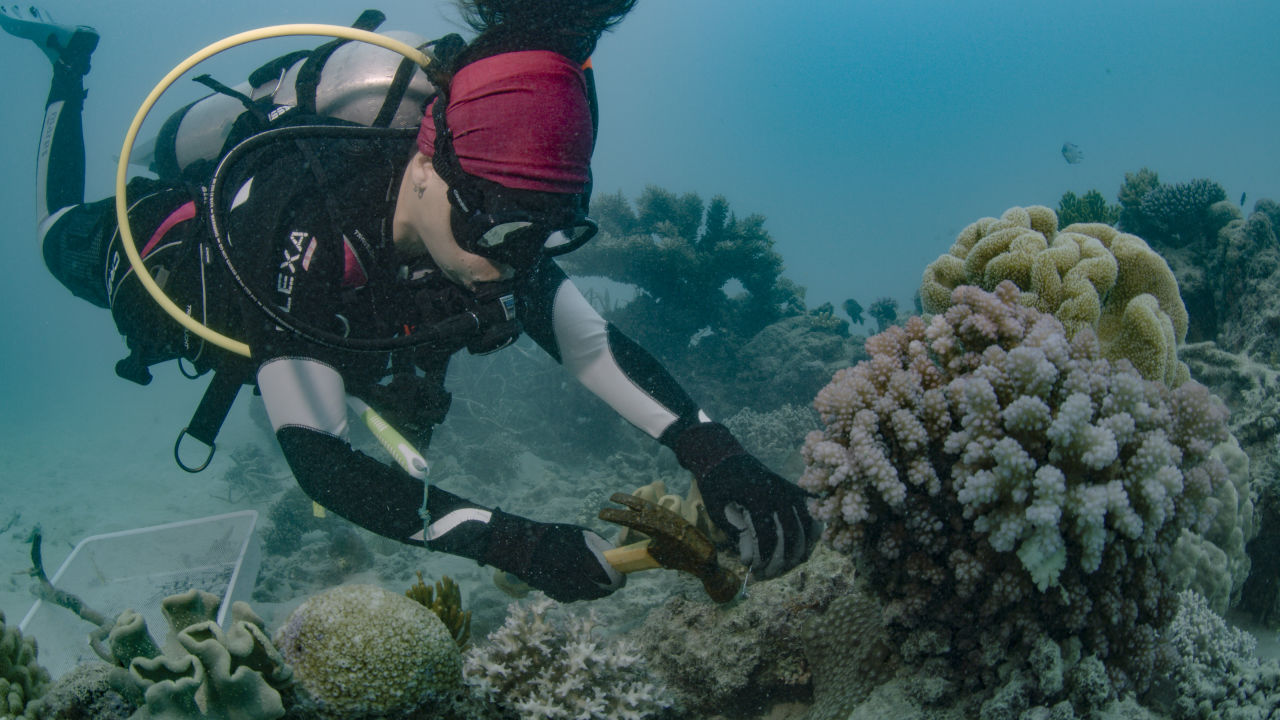
The brainchild of scientists at the University of Technology Sydney, the Coral Nurture Program was launched in 2018 following mass coral bleaching across the Great Barrier Reef to support widespread coral planting at sites critical to Reef health and the tourism industry.
Recognised for excellence by Australia’s most comprehensive national science awards, the innovative Coral Nurture Program is currently working with six local tourism operators to plant 100,000 healthy corals on reefs in the Cairns and Port Douglas region.
The corals, grown in underwater nurseries from salvaged broken fragments, are being attached using Coralclip® – an innovative device that fast-tracks coral restoration.
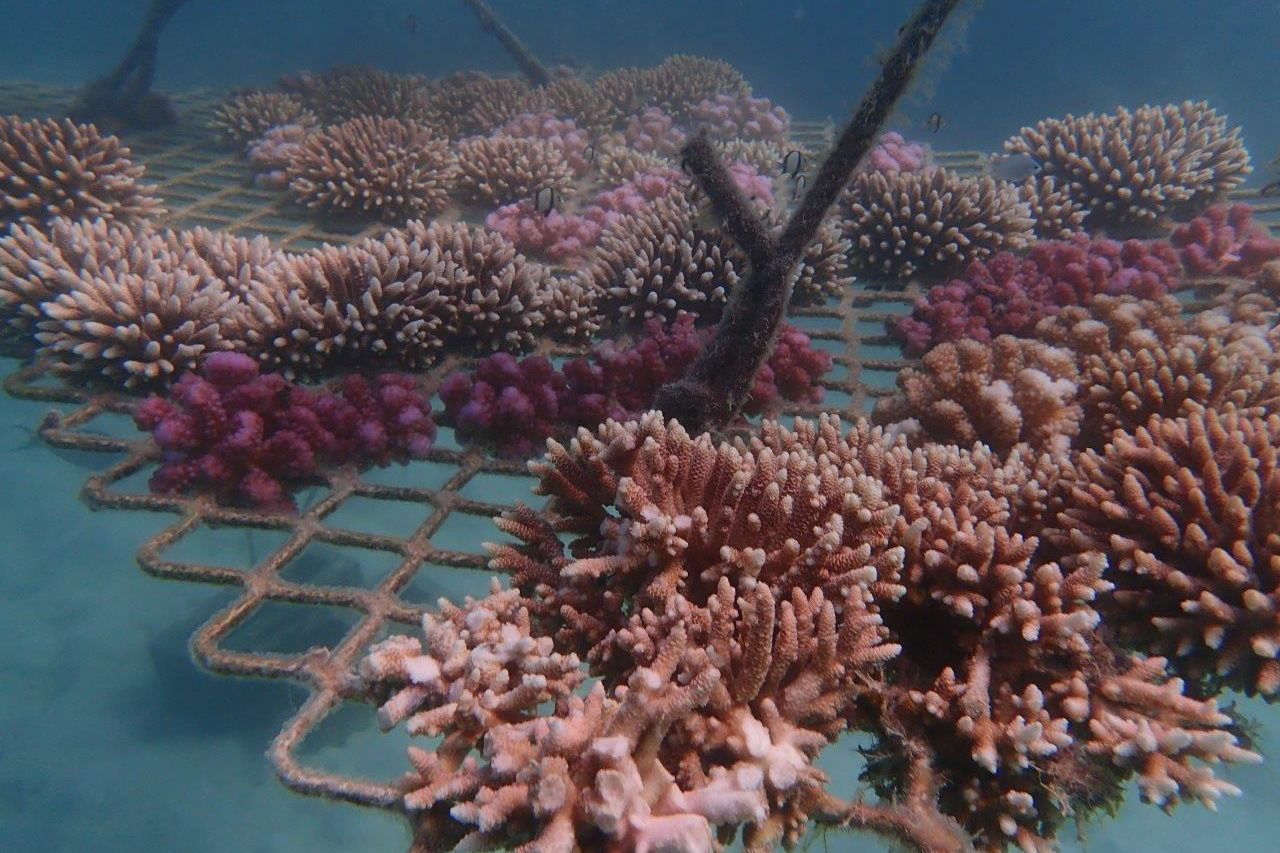
Corals growing on underwater coral nursery frames. Credit: Wavelength Reef Cruises
Out planting corals at scale can help to rehabilitate damaged areas and boost the resilience of healthy areas.
The specially designed Coralclip® joins corals to the Reef so that the coral can attach and grow, without the need for chemical bonding agents. It is faster and cheaper than traditional out-planting methods and has contributed to an impressive planted coral survival rate of 85%.
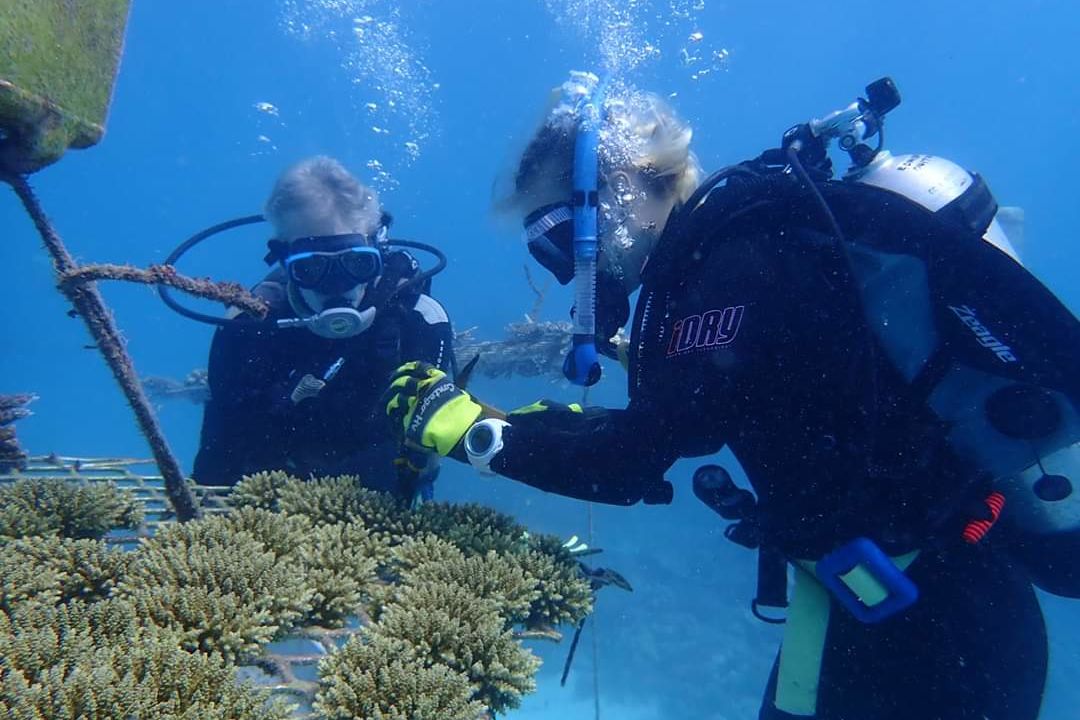
Divers check the corals growing in underwater nurseries. Credit: Wavelength Reef Cruises
Bringing together science and tourism is key to the project’s success.
It’s through combining the knowledge of marine science experts and the resources and experience of the tourism industry that the program delivers local coral restoration at a scale never seen before on the Great Barrier Reef.
The scale of restoration is also thanks to the Coralclip® technology, a game-changing Queensland invention of Wavelength Reef Cruises, that provides a fast and more cost-effective solution to out-planting corals.
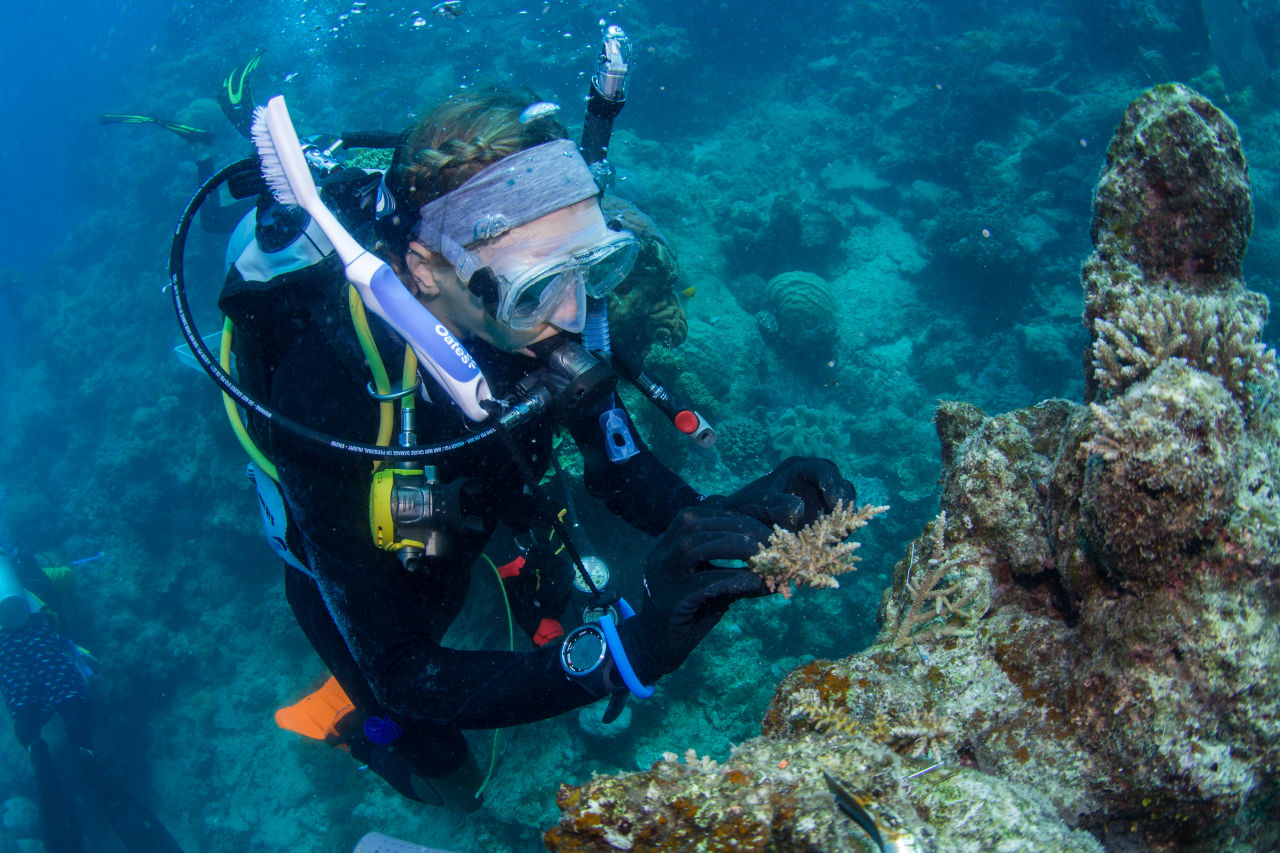
Corals are planted onto reefs to restore and repopulate them. Credit: Coral Nurture Program
University of Technology Sydney Project Research Lead Professor David Suggett said developing Coralclip® has enabled the program to replant coral ten times faster than ever possible before, and as it doesn’t use chemicals it has transformed how tourism can actively steward reef sites.
“In trialling coral nurseries to propagate corals we’ve already shown we can fast track growth to the size they reproduce, meaning we can plant them on a reproductively challenged Reef to accelerate its recovery,” Prof. Suggett said.
“Our research-tourism partnership is a world first model to ensure reef stakeholder efforts are not just about replanting coral, but using innovative science, practical actions and local knowledge to make informed propagation decisions needed to nurture a more resilient Great Barrier Reef under climate change.
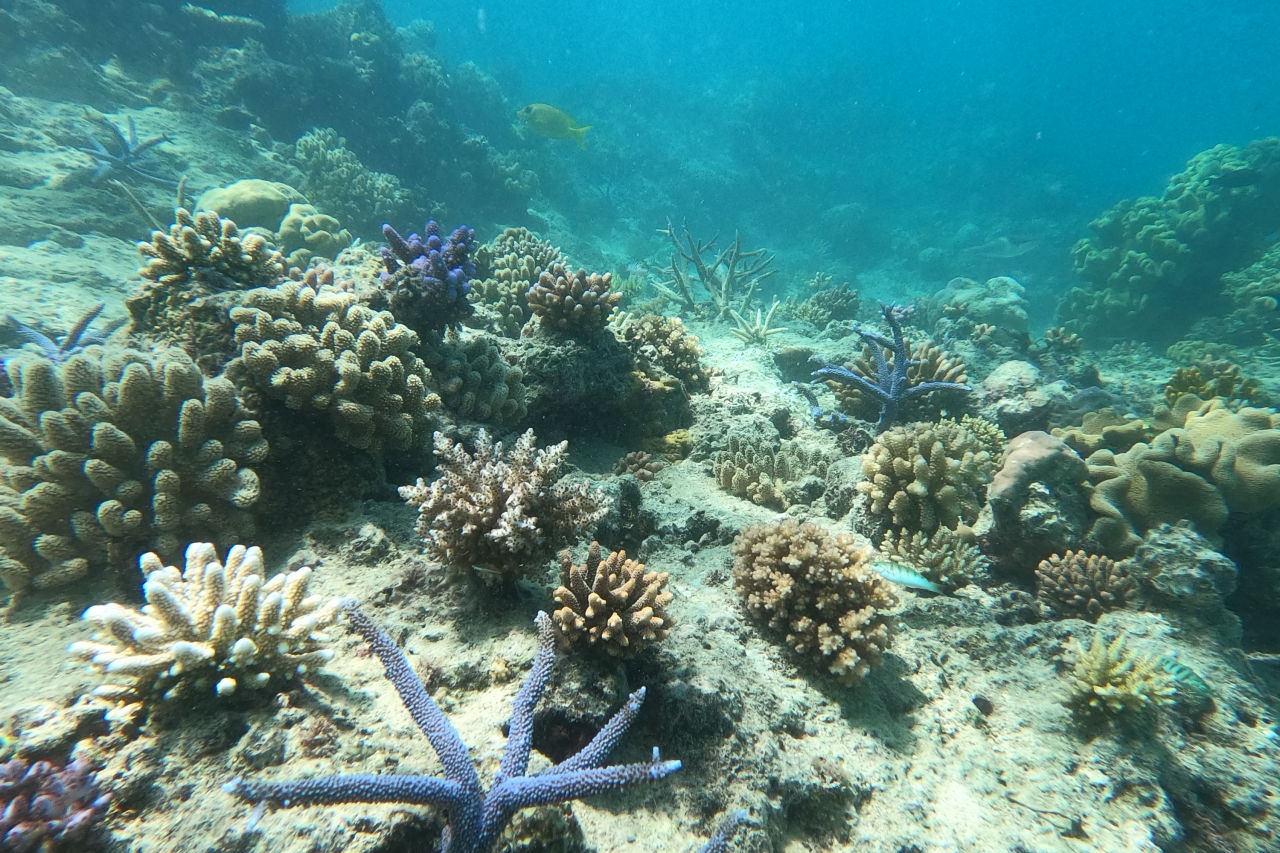
The program has so far transplanted more than 50,000 corals onto the Reef. Credit: Coral Nurture Program
Wavelength Reef Cruises owner John Edmondson said Reef tourism operators already undertake a number of site stewardship actions to help monitor and protect live coral cover.
“This program enables those actions to extend to actively growing and planting corals to boost live coral cover at those sites where it’s beneficial, such as assisting recovery after a cyclone.”
Through the Foundation’s partnership with the Australian Government’s Reef Trust, we are investing in the Coral Nurture Program over three and a half years with the University of Technology Sydney and tourism operators providing substantial in-kind support for field operations.
Participating tourism operators are Wavelength Reef Cruises, Ocean Free and Ocean Freedom, Passions of Paradise, Sailaway, Quicksilver Group, and Down Under Cruise and Dive.
#Eureka Prize winner
Dr Emma Camp from the Coral Nurture Program was awarded the Macquarie University Eureka Prize for Outstanding Early Career Researcher for her exciting research in ways to make coral reefs more resilient.
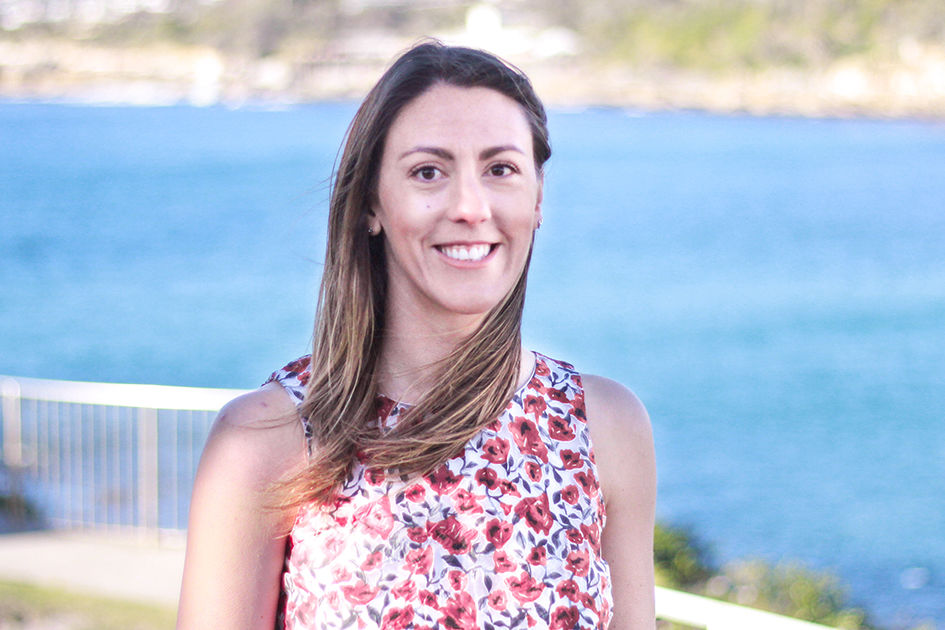
People of the Reef ·




